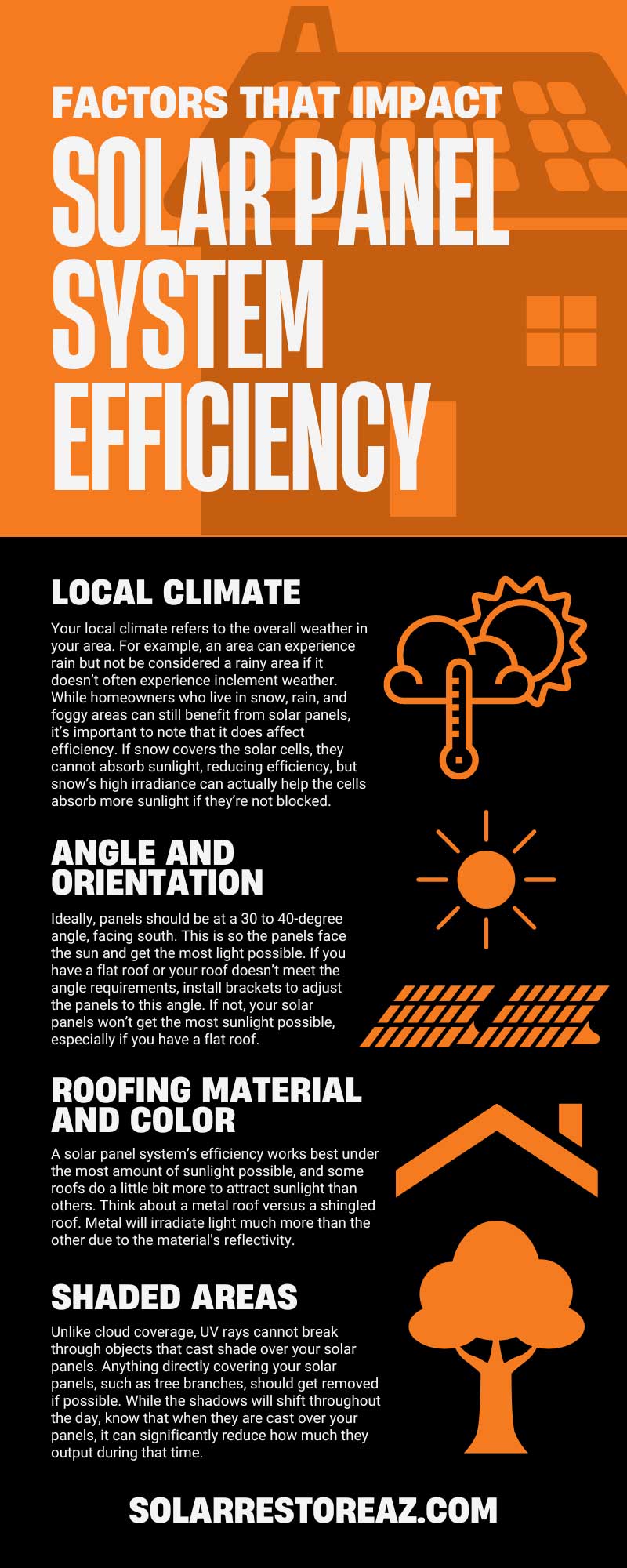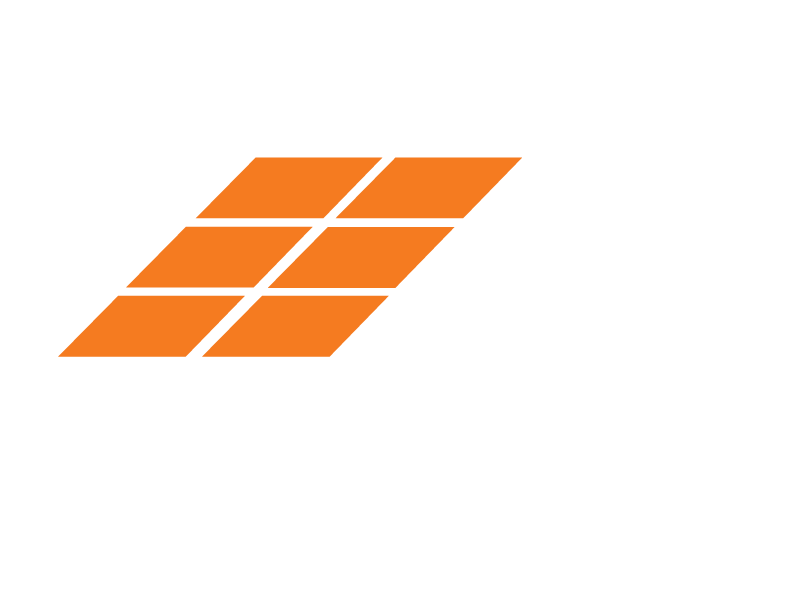7 Factors That Impact Solar Panel System Efficiency
The efficiency of your solar panel is how much energy the system outputs relative to the size and expanse of the system. Understandably, you’d want your solar panels to be as efficient as possible, and fortunately, you don’t have to spend exorbitant amounts of money on high-performance panels. To help your solar panels reach their full potential and increase your ROI, here are seven factors that impact a solar panel system’s efficiency.
Local Climate
Your local climate refers to the overall weather in your area. For example, an area can experience rain but not be considered a rainy area if it doesn’t often experience inclement weather. While homeowners who live in snow, rain, and foggy areas can still benefit from solar panels, it’s important to note that it does affect efficiency. If snow covers the solar cells, they cannot absorb sunlight, reducing efficiency, but snow’s high irradiance can actually help the cells absorb more sunlight if they’re not blocked.
If an area experiences dense fog or commonly cloudy skies, this will slightly dampen the output, but not as much as you may think. UV rays still break through, and you shouldn’t notice too much of a change in their efficiency, although it may still impact them.
Angle and Orientation
Ideally, panels should be at a 30 to 40-degree angle, facing south. This is so the panels face the sun and get the most light possible. If you have a flat roof or your roof doesn’t meet the angle requirements, install brackets to adjust the panels to this angle. If not, your solar panels won’t get the most sunlight possible, especially if you have a flat roof. A flat roof would mean that your panels get the most sun during the small window when it is directly above your panels– likely high noon. This simply isn’t efficient. However, you likely won’t have to worry about this, as your installer should pay attention to the orientation and optimize the system accordingly.
Roofing Material and Color
A solar panel system’s efficiency works best under the most amount of sunlight possible, and some roofs do a little bit more to attract sunlight than others. Think about a metal roof versus a shingled roof. Metal will irradiate light much more than the other due to the material’s reflectivity.
Additionally, the color of the roof can also increase how much light your solar cells can absorb. The darker the color, the more light it attracts. Equivalently, the darker the roof, the more sunlight attracted, the more UV rays the solar cells can absorb, and the more energy the system can output! This certainly isn’t to say light-colored roofs with non-reflective roofing materials can’t benefit from solar panels. Simply put, darker and more reflective surfaces give solar panel systems a bit of an edge over the rest.
Shaded Areas
Unlike cloud coverage, UV rays cannot break through objects that cast shade over your solar panels. Anything directly covering your solar panels, such as tree branches, should get removed if possible. While the shadows will shift throughout the day, know that when they are cast over your panels, it can significantly reduce how much they output during that time.
Unfortunately, you can’t do much if a building or immovable structure blocks the sun. However, your solar panel installer should pay attention to the orientation and do as much as possible to position the system accordingly. In very rare cases, you may not be able to install a solar panel system due to how severely the shade affects the system’s output and your overall monetary return.
Small Animals and Birds
While it may sound strange, birds and small animals that like to nest under the warmth and protection of panels can affect your system’s efficiency and even put the system in danger. The feathers, fur, and twigs used to make their nests can get caught up in the wiring and damage the system, not to mention the scratches and scrapes the panels can incur. Even worse, those nests can act like kindling, and one wrong spark can cause a system to go up in smoke. Many solar panel owners get solar panel bird guards installed to prevent this. Not only do they prevent birds from making nests, but they also stop small animals from moving in under your panels.
Maintenance Practices
Proper maintenance, including cleanings, can significantly affect the overall performance of your solar panels. Consistent maintenance done by your installer can pinpoint any issues your system may be experiencing and prevent problems from occurring altogether. This doesn’t just increase output either. Maintaining your system can increase the overall lifespan of your panels.
Additionally, neglecting to clean your panels can slowly and sneakily reduce their efficiency. Consistent and professional cleaning can also remove dirt and debris that builds up over time, preventing your panels from absorbing the most light possible. Ideally, you never want to clean your panels on your own or have someone unfamiliar with solar panels do it for you, as they can get easily scratched if cleaned incorrectly, damaging the system.
Solar Tracking System
Solar tracking systems are becoming increasingly popular with solar panel owners who want to get the most out of their investment. Most homes have fixed units installed, but systems that track the sun throughout the day are available. With this technology, the panels can angle and adjust according to where the sun is, essentially self-optimizing to receive the most sunlight possible. The tracking system can greatly improve your solar panel system’s efficiency and make the issue of shadowing a thing of the past!
Now that you know a little bit more about what impacts a solar panels system’s efficiency, you’re better equipped to ensure that your panels give your home the most energy possible. And if you need assistance having your panels removed and reinstalled for maintenance or need bird guards installed, Solar Restore has you covered. We’re a solar energy company based in Phoenix, Arizona, specializing in just that and we’re dedicated to making owning a solar panel system a little bit easier.


